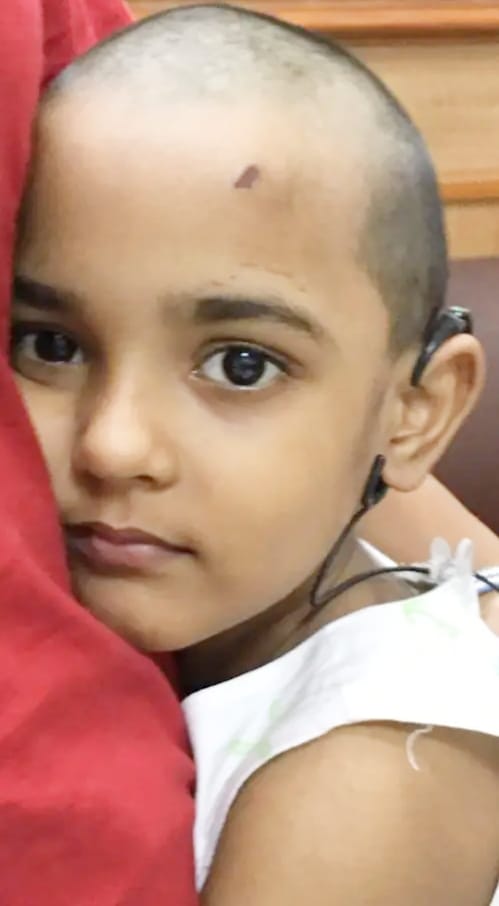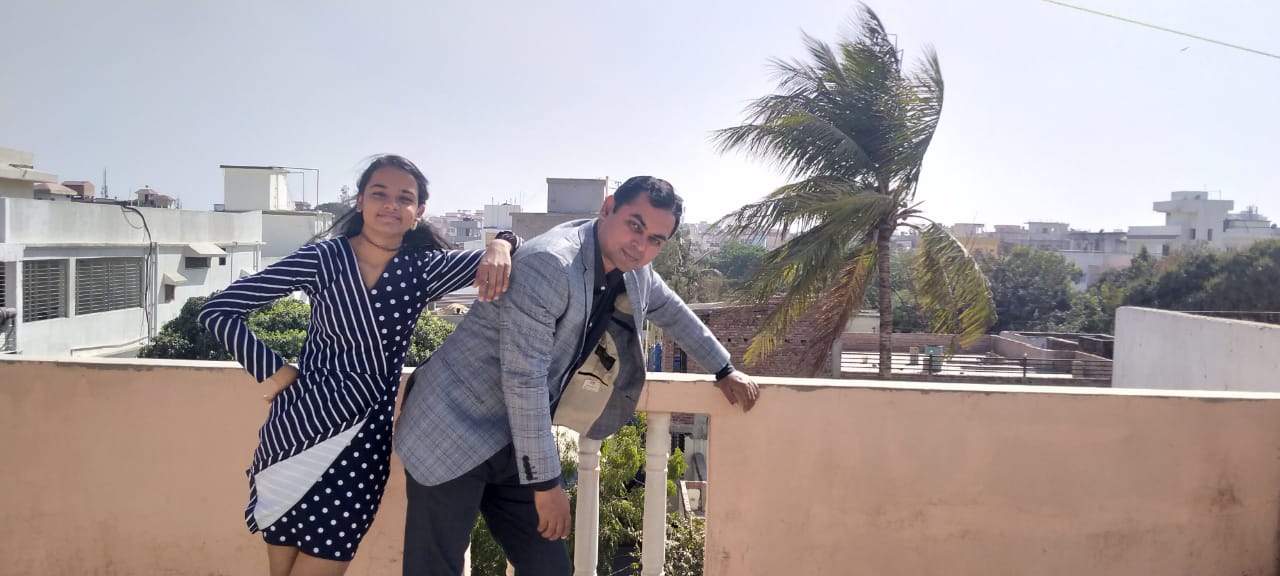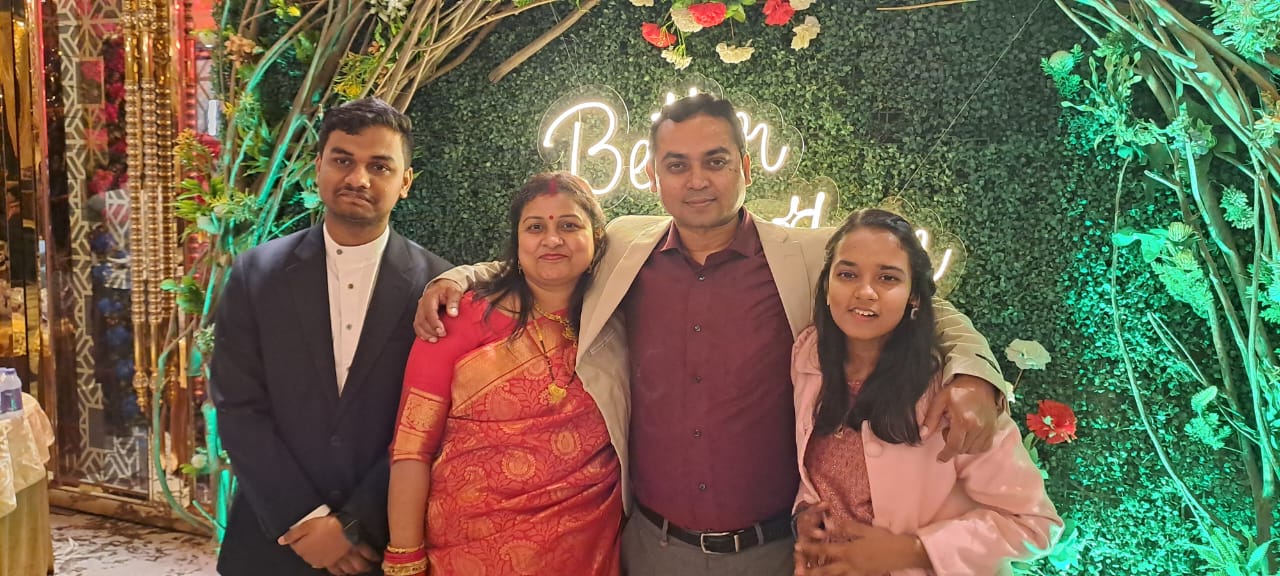Show Menu
Choose Your Location
You are now leaving the Viatris page for a Viatris affiliate site or third party site that is solely responsible for its content, including its compliance with guidelines applicable in certain geographies. Links to Viatris affiliate sites and third party sites are provided as a resource to our visitors and may not be governed by the same regulatory requirements applicable to this site and unaffiliated third party sites are subject to their own terms and data protection notices and practices. Moreover, if their third party site is subject to other country laws, regulatory requirements, data protection requirements or medical practices may differ between countries and the information provided therein may not be suitable for use in your country.

Voices of Viatris
By: Srinivas Ram Vishnubhotla
April 24, 2023
For the last 12 years, Vikas Kumar Rai’s life has held one overarching purpose: ensuring that his daughter, Sanjali, can hear others’ voices -- and raise her own.
Click here or play the video below for a look into life with Vikas and Sanjali.
Sanjali and her twin sister were born prematurely, but her twin was stillborn. Sanjali spent the first month of her life in hospital incubators, receiving medicine. Despite the sadness of losing one twin, Vikas – a zonal business manager with Viatris’ Critical Care business unit in India – and his wife, Madhuprabha Roy, were overjoyed that Sanjali survived.
But that happiness was short-lived.
When their daughter was 9 months old, the young parents soon realized something was wrong when a flower pot fell and broke.
“Although it was a big sound, she did not react as she could not hear it,” Vikas recalled.
The incident prompted them to seek treatment, a process that continues to this day.
 To access the appropriate level of care for his daughter, Vikas had to travel from his home state of Bihar to Delhi, a distance of about 1,000 kilometres. In Delhi, doctors at a leading public hospital diagnosed Sanjali with 90% hearing loss in both ears, possibly due to her premature birth. They recommended a cochlear implant and an external hearing device.
To access the appropriate level of care for his daughter, Vikas had to travel from his home state of Bihar to Delhi, a distance of about 1,000 kilometres. In Delhi, doctors at a leading public hospital diagnosed Sanjali with 90% hearing loss in both ears, possibly due to her premature birth. They recommended a cochlear implant and an external hearing device.
However, the journey to her first words would prove to be challenging. It wasn’t until Sanjali was 18 months old that she was able to get her first cochlear implant. The wait list at a public hospital was extensive, so her parents took her to a private hospital for extensive surgery. Speech therapy followed – a painstakingly long process. She did not speak for another year.
“Often, we lost hope and felt frustrated,” Vikas recalled.
Finally, after months of therapy, Sanjali said her first words at the age of 2.5 years. Her first word papa brought a tear to his eye and remains etched in his memory.
A few years later, she enrolled in kindergarten. But soon, teachers started to notice that she was not responding to sounds. At this point, the doctors recommended an implant in the second ear as a solution.
The initial years when she could not hear (and hence talk) set her back as she fell behind other students in her class in academics. Vikas, though, was not worried as Sanjali was mentally on par with the other children. Her scores too have improved over the years. And she started living a normal childhood as she had no other physical ailments.
“She gradually become socially confident as well as she was regularly a part of interschool dance competitions.” Dance remains a passion for her to this day. Another passion that has remained with her over the years is her ambition to become a doctor. “Maybe her regular interactions with the doctors over the years instilled this desire in her,” said Vikas.

Cut to 2022, one of the cochlear implants stopped functioning, requiring a replacement. “Every time an implant is replaced, it should be mapped while the patient must undergo speech therapy, as every implant works differently. Moreover, whenever Sanjali removes the external device, she cannot hear any sounds, so precautions must be taken. For instance, she sleeps with her mother as she would be unable to hear anything in case of any danger. When it rains, she must protect the external device,” he said.
The ongoing effort to support Sanjali can take a toll on her parents, mentally and financially. They are wary of the future when Sanjali would pursue her future studies alone away from home. They are concerned about her marriage as she would need to find the right partner. Moreover, there would always be financial stress given her condition is permanent and requires expensive interventions.
“For us, it is a continuous struggle with no permanent solution. In such a situation, the culture and moral support at the workplace becomes vital," pointed out Vikas.
“I have realized the importance of organizations that care for the well-being of their employees and their families. Moral support and understanding are critical to helping one tackle problems in their personal life,” he said.
He recalls how his business unit head, HR business partner and commercial operations head were sympathetic and made him feel better when Sanjali underwent the replacement surgery last year. “During this time, I built an emotional bond with them,” he recalled.
The challenges of finding access to hearing and speech for Sanjali – something others can take for granted – have helped to shape the way Vikas thinks about his career.
 “Sanjali has become the purpose of my life,” he said. “I am more sincere and responsible in my professional career as I continuously remind myself of my greater responsibility to my daughter and family.”
“Sanjali has become the purpose of my life,” he said. “I am more sincere and responsible in my professional career as I continuously remind myself of my greater responsibility to my daughter and family.”